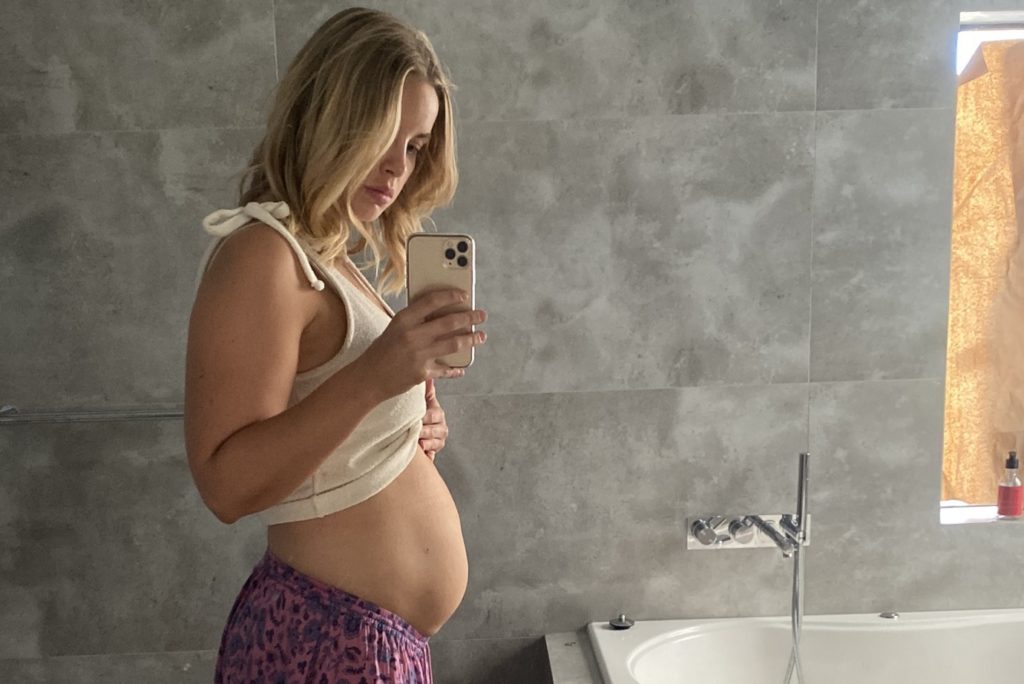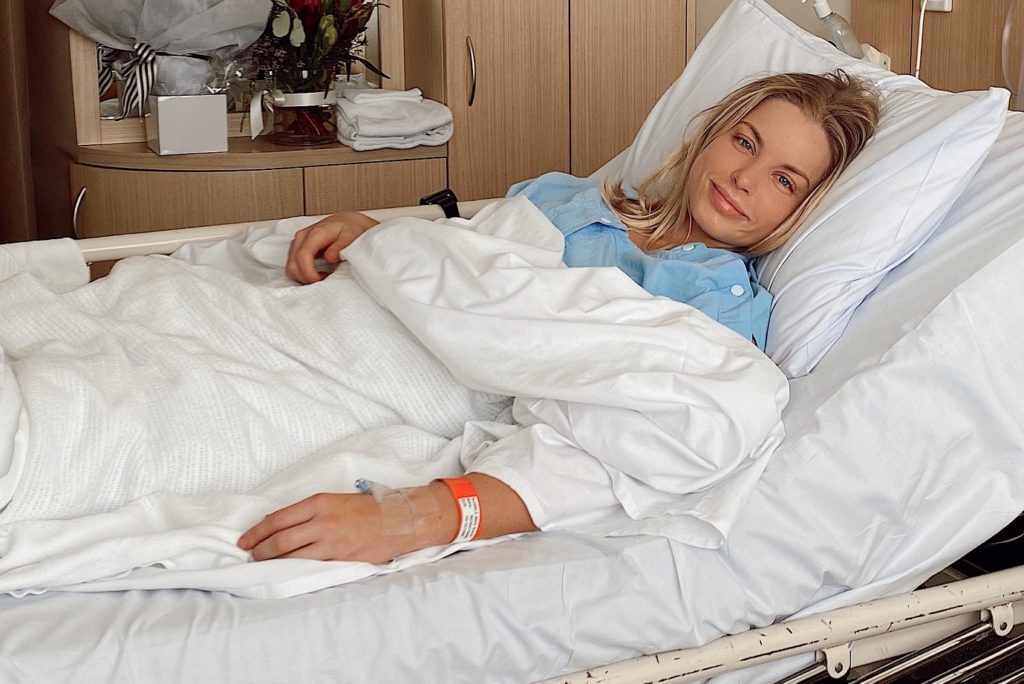For thousands of Australian women, the notion of “falling pregnant” isn’t quite so simple or carefree.
For some, it takes months. For others, it can take years with medical interventions like fertility drugs, insemination or IVF. And for some women, biologically carrying a child is never a viable possibility.
There are certain conditions that can add to the risk of infertility in women, including endometriosis—a condition which currently affects one in ten Australian women though diagnosis is rarely straightforward.
Endometriosis is a disorder in which tissue that normally lines the uterus grows outside and can be found on the ovaries, fallopian tubes or the intestines. The most common symptoms are pain and menstrual irregularities.
29-year-old business owner and former professional skier, Keira Rumble only learned she had severe endometriosis in May following her fourth miscarriage earlier that year; an experience which “shook her to her core”.
Determined to share her story widely however, with the hope of destigmatising fertility struggles and providing solace for women going through similar difficulties to her own, Keira opens about her journey of pain management and fertility treatments with Women’s Agenda.
In just a few years, Keira has had a total of five pregnancy losses – four miscarriages as well a recent heterotopic pregnancy which she describes as a “double whammy”.
“It was a heterotopic pregnancy which was a dual pregnancy – one in the uterus which miscarried and one ectopic,” she explains.
A rare complication, heterotopic pregnancies are ones in which both extra-uterine (ectopic pregnancy) and intrauterine pregnancy occur simultaneously. A cruel blow to Keira who had always wanted twins, the experience was made more overwhelming by the uncertainty surrounding her diagnosis and treatment by medical staff.
“There was a lot of confusion about my diagnosis at the hospital, with them turning me back multiple times after my miscarriage, saying I was just ‘emotional’ and to take pain killers and get counselling,” Keira shares.
“But I knew deep down there was something physically wrong with my body, and I kept insisting to get further scans.”
After weeks of trips to emergency only to be sent home, Keira was finally sent another scan which showed her abdomen filled with blood. She was rushed to hospital.
“The trauma from being made to feel that I was too emotional was something I really struggled with,” she says. “Being told to go home when I was in pain and adamant that something was physically wrong was really hard.”
Keira also describes feeling “so much more aware of the statistics of having multiple miscarriage and infertility challenges” and feeling a sense of isolation and defeat.
“I felt so alone during each and every one of the losses and felt so ashamed with myself for what was going on with my body,” she says.
The physical challenges for Keira are still significant and ongoing.
Earlier this year in May, following months of debilitating pelvic pain and the rupture of her left fallopian tube, she finally underwent surgery for adhesion pain where doctors discovered and diagnosed endometriosis.
My body was riddled with endometriosis, it was over both ovaries, pelvic wall left and ride side, bowel, bladder, right tube, the remaining part of my left tube. It was everywhere,” she shares.

The surgery was successful, but Keira concedes that “every day is a challenge”.
“I still feel pain, I still get bloated, and still am facing fertility challenges,” she says.
But she has also been embraced and found comfort and solidarity in the beautiful community of women who live with endometriosis across the country.
“It is honestly shocking to find out some of the statistics that are associated with endo and miscarriage, it is far more common than I ever could have imagined,” she says.
She has also made time to meditate, build self-love, connect with others that understand her pain and research her conditions to be her own biggest advocate.
“I am slowly healing my mind,” Keira says, adding that while “some days are harder than others”, a simple quote has helped to guide her through moments of darkness.
“There is a beautiful A.A Milne quote that says: ‘Sometimes the smallest things, take up the most room in our heart.’ This quote speaks volumes about how I feel about what I have been through, and I know a lot of other women would agree. They are never forgotten, but over time, it gets easier.”
***
Want more stories on women’s health? Sign up for our new Women’s Health Newsletter, delivered to your inbox every week.


